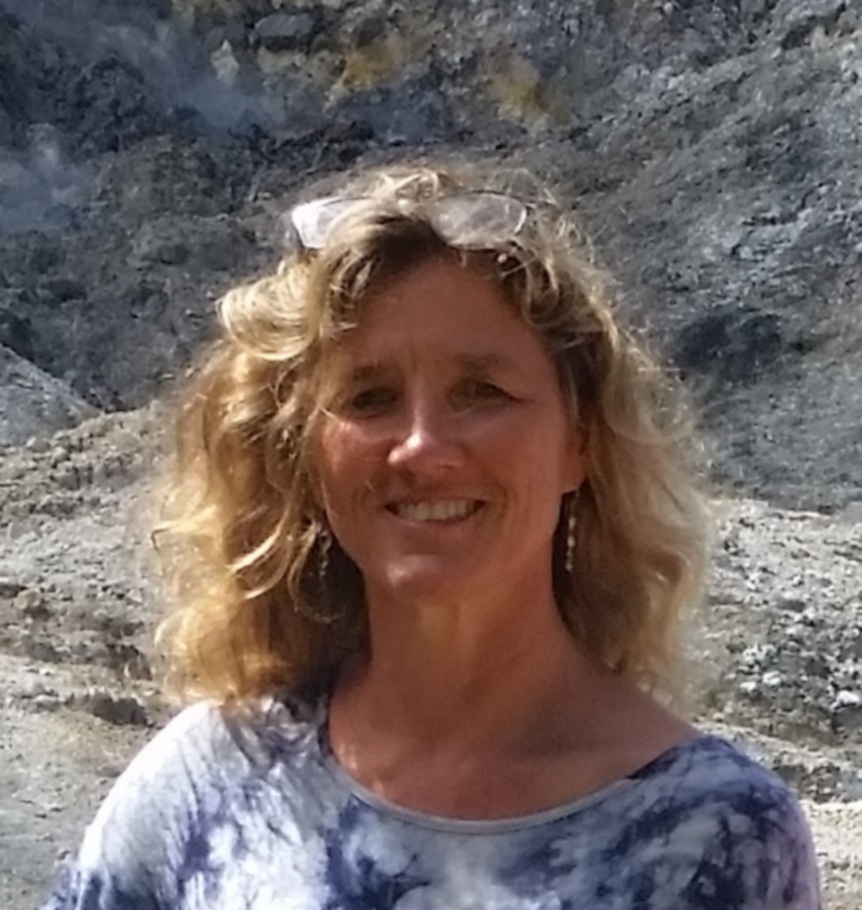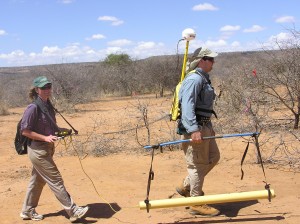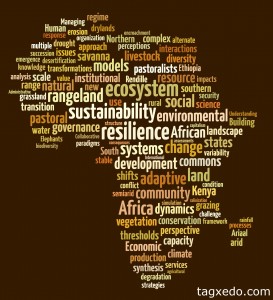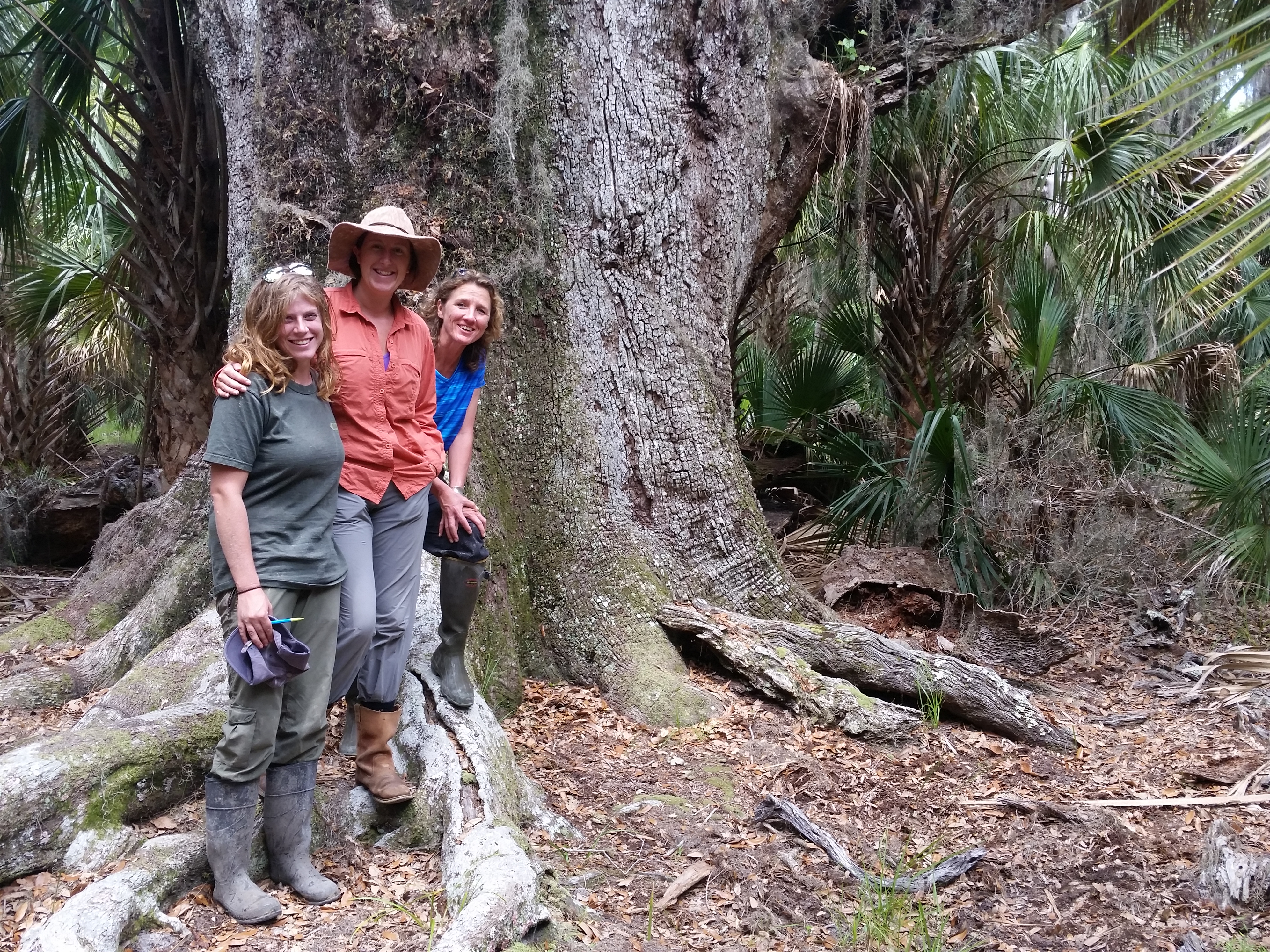 Ph.D. Population Biology, University of California, Davis
Ph.D. Population Biology, University of California, Davis
M.S. Population Biology, University of California, Davis
B.A. Biology, Reed College
ROLES AT THE UNIVERSITY OF GEORGIA:
Associate Professor, Odum School of Ecology and Warnell School of Forestry & Natural Resources
Faculty contact person for the Integrative Conservation and Sustainability (ICAS) M.S. program in Odum School of Ecology
Campus Affiliations:
- Center for Integrative Conservation, Executive Board member
- Sustainability Certificate Program, Advisory Board member
- African Studies Institute, Affiliate
- Institute for Resilient Infrastructure, Affiliate
- River Basin Center, Affiliate
SUSTAINABILITY IN AFRICAN DRYLANDS
My main research interests revolve around semi-arid ecosystems and traditional pastoralist societies that rely upon them. My approach to these social-ecological systems began with my doctoral research (Population Biology, UC Davis) in the field of restoration ecology, where I examined the utility of planting native aloe shrubs into degraded Kenyan rangelands to promote vegetation recovery. Since then, I have continued to work on community-based rangeland restoration projects in Kenya, as well as studying the spatial and ecohydrological dynamics of land degradation and restoration. I am also keenly interested in the social and policy sides of land degradation and land tenure. I believe that integrating biophysical research with investigations into human dimensions of common pool resource management is essential to promoting pastoralist sustainability. This approach to sustainability science is at the heart of my research and teaching interests.
 I collaborate with academic researchers, practitioners, and graduate students on projects ranging from ecohydrology, to landscape-herbivore interactions, to human ecology and resource management. Our research is largely based on communally-owned group ranches in northern Laikipia County, Kenya. The region is home to the Laikipia Maasai people, lots of charismatic megafauna and stunning landscapes.
I collaborate with academic researchers, practitioners, and graduate students on projects ranging from ecohydrology, to landscape-herbivore interactions, to human ecology and resource management. Our research is largely based on communally-owned group ranches in northern Laikipia County, Kenya. The region is home to the Laikipia Maasai people, lots of charismatic megafauna and stunning landscapes.
Georgia Coastal ecosystems: LAND USE LEGACIES AND RESILIENT FUTURES
This is a rapidly growing new research program, in response to heightened interest among resource management and conservation agencies in tidal marsh and maritime forest restoration on the Georgia coast. In salt marshes, we are investigating how legacies of land use and hydrological manipulations affect ecosystem function, and how soil-water-vegetation dynamics reorganize following restoration activities and in response to climate change. In particular, we are focusing on sites where tidal flows have been restricted by dikes causeways impoundments, etc. Since restoration entails reintroducing tidal flows into previously tidal-restricted areas, can this study system serve as a window to view the potential impacts of sea level rise?
In barrier island maritime forests, we are investigating how land use legacies interact with current, novel suites of stressors to affect the regeneration of these iconic and globally rare ecosystems. We have ongoing research on Jekyll, Ossabaw, St. Catherines, and Sapelo Islands. On Jekyll Island, our research addresses not only herbivore effects on regeneration, but also spatiotemporal shifts in tree species distributions (with Nate Nibbelink), management alternatives (with Clint Moore), and people’s perceptions of live oak trees as iconic species (Sarah Horsley, PhD Student). Hannah Morris (PhD student) is investigating the interactions of deer, hogs, and land use history on regeneration and water stress in live oak (Quercus virginiana) and sand live oak (Quercus geminata) seedlings across all four islands. Dessa Dunn (MS student) is studying the recruitment dynamics of the exotic camphor tree (Cinnamomum camphora) in mixed pine-hardwood forests on Jekyll Island.


